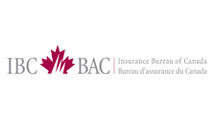2017 issues
Vol.4 No.4 December 2017/ December 2017
Message from the Editors
Welcome to the seventeenth issue of the ADR Perspectives newsletter.
In this issue, you will hear from arbitrators and arbitral counsel from across the country.
Also, Ludmila Herbst has decided to step down from the Editorial Board, and we would like to express our appreciation for her valuable contributions to the newsletter.
As always, please keep the newsletter in mind for topics on which you would like to submit an article that would be of interest to the ADR user community.
Articles on mediation or in French would be most welcome.
Happy reading.

Bryan C. Duguid, Q.C., FCIArb
Pamela Large Moran, LL.B, LL.M (ADR), C.Med, C.Arb
|
 Fast Track Arbitration Fast Track Arbitration
By Michael Butterfield
Time is money. When disputes arise, we all look for fast, efficient and fair methods of resolution. Fast track arbitration protocols developed by ADR Canada can save time and money. They provide a framework to resolve many disputes within as little as three months.
|
|
 Without Prejudice: an Invisibility Cloak for a Mature World Without Prejudice: an Invisibility Cloak for a Mature World
By Steve Eichler and Chloe Mathioudakis
Without prejudice communications are common to court-based litigation and, its faster, cheaper sibling, arbitration. Arguably, the entirety of mediation is without prejudice since its existence in any dispute is based on joint efforts toward resolution. Yet despite the ubiquitous nature of the phrase itself, confusion still reigns. What exactly does the phrase “without prejudice” mean? Is it necessary to write these magic words on every communication made in the course of the settlement process? And if so, does the failure to explicitly state them render them powerless? |
|
 Consolidation of Arbitration Proceedings Consolidation of Arbitration Proceedings
By Timothy Froese and Sierra Bilyk
It is not uncommon for parties in long-term commercial relationships to become involved in multiple related arbitrations. If so, the parties may consolidate the arbitrations into a single proceeding for the sake of consistency and efficiency. But when is consolidation appropriate? And what happens if the parties do not agree? Depending on the governing legislation, the court may intervene. That was the issue in the Pricaspian case where the Alberta Court of Queen’s Bench held it had the jurisdiction to order consolidation under the Alberta International Commercial Arbitration Act, even over the objections of one of the parties. |
|
 The Appeal of Arbitration The Appeal of Arbitration
By William G. Horton, C.Arb, FCIArb
In an article in the last edition of Perspectives, Murray Smith suggested that arbitration is losing its appeal and that the only way to correct that is to provide greater recourse to the courts to correct “aberrant results”. However, the opposite can be said to be true. |
Vol.4 No.3 September 2017/ septembre 2017
Message from the Editors
Welcome to the sixteenth issue of the ADR Perspectives newsletter.
In this issue, our authors include arbitrators, arbitral counsel, and users of arbitration services from Vancouver and Toronto.
Rahat Godil and Max Shapiro tell us what we need to know about the new fast track arbitration process that the ICC is implementing to promote cost and time efficiencies in the resolution of international commercial disputes.
David E. Gruber and Nicholas M. Vaartnou provide their insights into the continuing development of the law arising from the Sattva decision, in particular, whether arbitral decisions about standard form contracts and “widely used” contracts are subject to review by the Courts on a reasonableness standard. William Hartnett, QC and Michael Schafler discuss the advantages and disadvantages of ad hoc arbitration versus institutional arbitration in Canada, including the availability of institutional arbitration services from the ADR Institute of Canada, Inc.
Murray Smith LLM, FCIArb, Chartered Arbitrator also provides a perspective on the Sattva decision, relaying his concerns about the effect of that decision and other decisions that have limited the right to appeal arbitral awards in Canada.
As always, we welcome articles with practical tips and advice for the ADR user community, especially in the field of mediation or in French.
Happy reading.

Bryan C. Duguid, Q.C., FCIArb
Pamela Large Moran, LL.B, LL.M (ADR), C.Med, C.Arb
|
 What You Need To Know About the ICC’s New Fast Track Arbitration Process What You Need To Know About the ICC’s New Fast Track Arbitration Process
By Rahat Godil and Max Shapiro
The International Chamber of Commerce has streamlined its arbitration process to reduce the length and cost of arbitrations with new amendments to its Rules of Arbitration which came into force on March 1, 2017. Among the most notable changes is a new expedited procedure for resolving disputes in which the amount claimed is less than US$2-million, which the ICC is implementing in response to cost and efficiency concerns raised by businesses using institutional arbitration to resolve international commercial disputes. This article discusses the major benefits of and practical considerations relating to ICC’s new expedited procedure and how it compares to similar processes offered by other international arbitration institutions. |
|
 Appellate Review of Arbitral Decisions involving Contractual Interpretation: The Exception for Standard Form Contracts, Appellate Review of Arbitral Decisions involving Contractual Interpretation: The Exception for Standard Form Contracts,
By David E. Gruber and Nicholas M. Vaartnou
The Supreme Court of Canada recently held that issues of contractual interpretation were properly characterized as questions of mixed fact and law and that the standard of appellate review for arbitral decisions regarding such issues was reasonableness. The courts have subsequently established an exception to this standard for the interpretation of standard form contracts. This article will discuss this exception and its alleged expansion to “widely used” contracts to address when parties can rely on the deferential standard generally accorded to arbitral decisions. |
|
 Ad Hoc v. Institutional Arbitration – Advantages and Disadvantages, Ad Hoc v. Institutional Arbitration – Advantages and Disadvantages,
By William Hartnett, QC and Michael Schafler
The availability of institutional arbitration services from the ADR Institute of Canada (ADRIC) is a new development which provides parties with another option for their arbitration. Accordingly, the authors discuss the advantages and disadvantages of ad hoc arbitration and institutional arbitration in Canada. |
|
 Is Arbitration Losing its Appeal?, Is Arbitration Losing its Appeal?,
By Murray Smith, LLM, FCIArb, Chartered Arbitrator
In house counsel are increasingly concerned about the suitability of arbitration for the resolution of commercial disputes because of the danger of an aberrant result from which there may be no recourse. Arbitral institutions such as the British Columbia International Commercial Arbitration Centre and the International Centre for Dispute Resolution have attempted to respond to this concern. |
Vol.4 No.2 May 2017/ mai 2017
Message from the Editors
Welcome to the fifteenth issue of the ADR Perspectives newsletter.
In this issue, you will hear from arbitrators, mediators, and arbitral counsel from Calgary and Ontario.
Tim Martin describes the recently-completed work of the Association of International Petroleum Negotiators in revising its Model Dispute Resolution Agreement and accompanying Guidance Notes, and the utility of this resource in drafting dispute clauses for multi-jurisdictional disputes.
Dr. Martha E. Simmons offers her advice on who should attend a mediation, and the preparation of an opening statement and a mediation plan.
Melanie L. Teetaert and Julie J.M. Taylor identify solutions for the important practical issues that can arise when dealing with the translation of foreign language for an arbitral process.
Heather L. Treacy QC suggests benefits from the early and effective use of experts in ADR processes.
Jeffrey D. Vallis QC, FCIArb and Laura Poppel provide their views on the manner in which the Supreme Court of Canada has recently applied its decision in the Sattva case and what that means in terms of the ability to appeal arbitral awards.
R.D. (Bob) Waldon, Q.Med advocates the view that the Canadian ADR community can and should do more in resolving conflicts with indigenous peoples.
We welcome you to submit articles with practical tips and advice for the ADR user community, especially on mediation or in French.
Happy reading.

Bryan C. Duguid, Q.C., FCIArb
Pamela Large Moran, LL.B, LL.M (ADR), C.Med, C.Arb
|
 A Leading International Dispute Resolution Template A Leading International Dispute Resolution Template
By Tim Martin
There are recent revisions to a leading and widely recognized model international dispute resolution agreement along with its accompanying guidance notes. These revised materials, which have just been published, were updated to incorporate the best and latest provisions from the dispute resolution world. The template and guidance notes provide a useful tool in drafting dispute clauses and managing multi-jurisdictional disputes. |
|
 Mediation Advocacy – Preparation is Key Mediation Advocacy – Preparation is Key
By Dr. Martha E. Simmons
The following is an excerpt from the author’s recent book, Mediation: A Comprehensive Guide to Effective Client Advocacy (Toronto: Emond Publishing, 2017) |
|
 Practical Considerations When Dealing With Translations in an Arbitration Process Practical Considerations When Dealing With Translations in an Arbitration Process
By Melanie L. Teetaert and Julie J.M. Taylor
An arbitration involving a contract dispute can often come down to a few key words or terms in the contract. What if that contract is in another language and needs to be first translated into English? How do you make sure your case is not “lost in translation”? Translation can impact the interpretation of your contract. It can increase cost and impact arbitral timelines. The solutions to resolve these problems are not always obvious or easy. This article discusses some of the practical issues that counsel should consider when dealing with translation in an arbitration process. |
|
 Effective Use of Experts in ADR Effective Use of Experts in ADR
By Heather L. Treacy, QC
The engagement of an expert can be a vital step in assessing the issues, strengths and weaknesses of a case. The practice of litigation counsel is frequently to hold the evidence obtained from an expert close to their vest until late in the proceedings. This article examines whether there are ways to use experts early and more effectively to resolve those disputes that primarily turn upon expert evidence. |
|
 The Post-Sattva Scope of Arbitration Appeals The Post-Sattva Scope of Arbitration Appeals
By Jeffrey D. Vallis, QC, FCIArb et Laura Poppel
Creston Moly Corp. v. Sattva Capital Corp., 2014 SCC 53 (“Sattva”) is a landmark decision affecting arbitration practice in Canada in many ways. The decision is of particular importance because of its discussion of the right of a party to appeal an arbitral award when the underlying dispute arises out of an issue of contractual interpretation. Although appellate courts have restricted Sattva’s application in the context of appeals of trial courts’ decisions, the recent SCC decision in Urban Communications Inc. v. BCNET Networking Society, 2016 SCC 45 confirms that the principles of Sattva continue to govern the limited scope of appeal in arbitration. |
|
 The ADR Community and Indigenous Relations “What are we doing?” The ADR Community and Indigenous Relations “What are we doing?”
By R.D. (Bob) Waldon, Q.Med
At ADRIC2016, members came together to dialogue about one of Canada’s most important historical and contemporary issues that has been, and still is, very much informed by conflict; Canada’s relationship with Indigenous peoples. They shared their perspectives and ideas about the ADR community of practice’s role in this relationship and asked “What can we do? What should we do?” Their short answer was, “We should do more.” ADRIC2017 will be an important opportunity to continue this conversation and seek appropriate ways forward. |
Vol.4 No.1 – February 2017 / février 2017
Message from the Editors
Welcome to the fourteenth issue of the ADR Perspectives newsletter, now beginning its fourth year of publication.
In this issue, you will hear from arbitrators, mediators, and arbitral counsel from across the country.
William G. Horton emphasizes the importance and benefits of direct negotiation to resolve disputes, and offers some practical tips to get the most out of it.
Harvey J. Kirsh outlines the potential for multiplicity of proceedings and inconsistent findings that can arise in construction disputes involving multiple related contracts and parties, as well as some potential solutions.
Pamela Large Moran comments on Canadian apology legislation, as well as the requirements and value of an effective apology in resolving disputes.
Darren J. Reed provides observations and advice about how to conduct a fast-tracked ad hoc construction arbitration without sacrificing fairness.
Mitchell Rose advocates for direct face-to-face discussion to break down barriers to resolution that can exist or escalate as a result of written communication.
Mary Jane Stitt identifies aspects of commercial insurance disputes that should be kept in mind in mediating those particular kinds of disputes.
In addition, Andrew Roman has stepped down from the Editorial Board, and we would like to express our appreciation for his contributions to the newsletter over the past couple of years.
As always, please keep the newsletter in mind for topics on which you would like to submit an article that would be of interest to the ADR user community.
Articles on mediation or in French would be most welcome.
Happy reading.

Bryan C. Duguid, Q.C., FCIArb
Pamela Large Moran, LL.B, LL.M (ADR), C.Med, C.Arb
|
 Mediation is not Enough Mediation is not Enough
By William G. Horton
In this article the author discusses why mediation should not be the only strategy for settling business disputes and suggests a greater emphasis on direct negotiation and other options for in house counsel. |
|
 Construction vs Design: Sorting out Claims Involving Multiple Parties and Contracts Construction vs Design: Sorting out Claims Involving Multiple Parties and Contracts
By Harvey J. Kirsch
This article discusses the issues which arise in the context of a construction dispute when there are numerous related contracts and multiple parties, and when one of the contracts, to which the other parties may not be privy, calls for mandatory arbitration. The article describes the risk and reality of potentially inconsistent findings and conflicting results, in the midst of a multiplicity of proceedings. |
|
 Apology Legislation and the Effective Use of Apology in Dispute Resolution and Reconciliation Apology Legislation and the Effective Use of Apology in Dispute Resolution and Reconciliation
By Pamela Large Moran
Within the last decade provincial and territorial policy makers have enacted “Apology Legislation” into their statutory regimes. Apology Legislation allows a party to facilitate an expression of remorse and regret, without the fear that this expression will be later used to their detriment in litigation. This article will speak to the history of apology legislation, the benefits of apologies in the mediation arena, and the necessary components of an effective apology. |
|
 Fast-tracked ad hoc Construction Arbitration Fast-tracked ad hoc Construction Arbitration
By Darren J. Reed
In many ad hoc arbitration cases there is a desire on the part of at least one of the parties to try to “fast track” the proceedings. Successfully implementing that desire can prove to be elusive, unless there is an alignment among counsel, clients, and arbitrators alike to make the schedule paramount, without sacrificing fairness. Even where such an alignment exists, a carefully drafted arbitration schedule and procedure are important fail-safes |
|
 The Secret to Settling Legal Disputes The Secret to Settling Legal Disputes
By Mitchell Rose
”It is better to talk jaw to jaw than have a war” – Winston Churchill |
|
 Mediation of Commercial Insurance Disputes Mediation of Commercial Insurance Disputes
By Mary Jane Stitt
This article is based on the author’s experience as both a counsel and a mediator of complex commercial insurance disputes. It explores certain features of commercial insurance mediations that are idiosyncratic and different from other types of business disputes. It identifies issues to be resolved early in the mediation process and recommends practices and approaches that will enhance the likelihood of a successful mediation – diffusing claims handling complaints, thorough preparation and command of the material, dispelling negative perceptions based on stereotypes in insurance relationships, and the importance of principled, patient negotiation. |



 On October 30, 2023, the International Chamber of Commerce released its ground-breaking resource, the Guide on Disability Inclusion in International Arbitration and ADR (the “Guide”). The release marks a crucial leap forward in fostering the active and meaningful participation of individuals with disabilities in the arbitration industry. In this article, I explore the significance of the Guide and outline actionable steps for Canadian arbitration practitioners to increase inclusivity in arbitration proceedings.
On October 30, 2023, the International Chamber of Commerce released its ground-breaking resource, the Guide on Disability Inclusion in International Arbitration and ADR (the “Guide”). The release marks a crucial leap forward in fostering the active and meaningful participation of individuals with disabilities in the arbitration industry. In this article, I explore the significance of the Guide and outline actionable steps for Canadian arbitration practitioners to increase inclusivity in arbitration proceedings. The UK Privy Council’s landmark decision in 2023 added a new term to our arbitration dictionary: “remedial non-arbitrability”. The question is whether this new term represents a new concept to be kept on practitioners’ radar for developments, or whether it is just a new term for an already existing concept.
The UK Privy Council’s landmark decision in 2023 added a new term to our arbitration dictionary: “remedial non-arbitrability”. The question is whether this new term represents a new concept to be kept on practitioners’ radar for developments, or whether it is just a new term for an already existing concept. This article highlights some aspects of a recent decision of the Ontario Superior Court of Justice applying a deferential standard of review on an application to set aside an international arbitration award. On that basis, the Court found that, considering the procedure agreed by the parties and ordered by the tribunal, the refusal of a tribunal to allow a witness to provide additional evidence did not deprive a party of an opportunity to present its case.
This article highlights some aspects of a recent decision of the Ontario Superior Court of Justice applying a deferential standard of review on an application to set aside an international arbitration award. On that basis, the Court found that, considering the procedure agreed by the parties and ordered by the tribunal, the refusal of a tribunal to allow a witness to provide additional evidence did not deprive a party of an opportunity to present its case. In Dow Chemical v. Nova Chemicals, the Alberta Court of Appeal considered when a party has participated in an arbitration such that it is foreclosed from having the Court decide a jurisdictional issue, as well as the role of the Courts in determining an arbitrator’s jurisdiction. The Court of Appeal gave valuable guidance on these issues. Competence-competence is alive and well in Alberta, and the role of the Courts in arbitration matters is limited.
In Dow Chemical v. Nova Chemicals, the Alberta Court of Appeal considered when a party has participated in an arbitration such that it is foreclosed from having the Court decide a jurisdictional issue, as well as the role of the Courts in determining an arbitrator’s jurisdiction. The Court of Appeal gave valuable guidance on these issues. Competence-competence is alive and well in Alberta, and the role of the Courts in arbitration matters is limited. In 2010, the United Nations Commission on International Trade Law completed the first and most significant revision of the UNCITRAL Arbitration Rules, initially released in 1976. The 2010 amendments sought to update the UNCITRAL Rules to reflect the then modern arbitration practice while preserving the structure and flexibility of the 1976 Rules. This article considers the presumptive application of the 1976 Rules to disputes arising from agreements concluded prior to August 15, 2010, and then highlights some of the key changes that should be considered in overall arbitration strategy when considering whether to arbitrate under the 1976 Rules.
In 2010, the United Nations Commission on International Trade Law completed the first and most significant revision of the UNCITRAL Arbitration Rules, initially released in 1976. The 2010 amendments sought to update the UNCITRAL Rules to reflect the then modern arbitration practice while preserving the structure and flexibility of the 1976 Rules. This article considers the presumptive application of the 1976 Rules to disputes arising from agreements concluded prior to August 15, 2010, and then highlights some of the key changes that should be considered in overall arbitration strategy when considering whether to arbitrate under the 1976 Rules. Since the Supreme Court of Canada’s decision in Canada (Minister of Citizenship and Immigration) v. Vavilov, uncertainty has arisen regarding the standard of review applicable to arbitral appeals. This important issue continues to divide lower courts, and yet appellate courts across Canada have consistently refused to provide much needed guidance directly addressing the issue.
Since the Supreme Court of Canada’s decision in Canada (Minister of Citizenship and Immigration) v. Vavilov, uncertainty has arisen regarding the standard of review applicable to arbitral appeals. This important issue continues to divide lower courts, and yet appellate courts across Canada have consistently refused to provide much needed guidance directly addressing the issue. The United Kingdom Supreme Court’s decision in R (on application of PACCAR Inc and others) (Appellants) v Competition Appeal Tribunal and others (Respondents) [2023] UKSC 28 has sent shockwaves through the third-party litigation funding market in the United Kingdom and has created uncertainty about whether and how arbitrating parties relying on third-party funding are affected. With this uncertainty, arbitral parties should expect that third-party funders will likely seek to revise funding agreements to ensure that they are compliant.
The United Kingdom Supreme Court’s decision in R (on application of PACCAR Inc and others) (Appellants) v Competition Appeal Tribunal and others (Respondents) [2023] UKSC 28 has sent shockwaves through the third-party litigation funding market in the United Kingdom and has created uncertainty about whether and how arbitrating parties relying on third-party funding are affected. With this uncertainty, arbitral parties should expect that third-party funders will likely seek to revise funding agreements to ensure that they are compliant. A diverse workplace can bring many benefits to a company or organization. Unless workplaces are managing diversity and inclusion through policy building, education and training, their initiative can lead to various challenges including conflicts that may require mediation.
A diverse workplace can bring many benefits to a company or organization. Unless workplaces are managing diversity and inclusion through policy building, education and training, their initiative can lead to various challenges including conflicts that may require mediation. While Investigations and inquiries are familiar services to clients, we introduce an earlier option within this category known as Preliminary Inquiry. This type of Preliminary Inquiry is an early warning protocol that may be activated before formal charges are formulated. It provides an opportunity for a Retaining Client to minimize their financial, organizational and reputational costs by taking pre-emptive action.
While Investigations and inquiries are familiar services to clients, we introduce an earlier option within this category known as Preliminary Inquiry. This type of Preliminary Inquiry is an early warning protocol that may be activated before formal charges are formulated. It provides an opportunity for a Retaining Client to minimize their financial, organizational and reputational costs by taking pre-emptive action. A mediator proposal is typically a one-time, “take-it-or-leave-it” dollar figure the mediator suggests at the end of the mediation process that – it is hoped – both parties will be tempted to accept. If both sides accept, the case settles for the number proposed. If one party accepts and the other rejects, the rejecting party is not informed of the acceptance. We review a sample of approaches experienced mediators take to such proposals.
A mediator proposal is typically a one-time, “take-it-or-leave-it” dollar figure the mediator suggests at the end of the mediation process that – it is hoped – both parties will be tempted to accept. If both sides accept, the case settles for the number proposed. If one party accepts and the other rejects, the rejecting party is not informed of the acceptance. We review a sample of approaches experienced mediators take to such proposals. Doubtless, this article is going to ruffle some feathers. I want the reader to open their mind to the notion that settlement of cases may be more about uncertainty and loss than genuine agreement. That uncertainty and loss are, in large measure, the conscious or unconscious result of “black robe anxiety”.
Doubtless, this article is going to ruffle some feathers. I want the reader to open their mind to the notion that settlement of cases may be more about uncertainty and loss than genuine agreement. That uncertainty and loss are, in large measure, the conscious or unconscious result of “black robe anxiety”. TDH v Du, [2023] ONSC 1808, clarifies two issues relating to enforcement of arbitral awards under the UNCITRAL Model Law: the threshold for adequate notice of arbitrations in the context of COVID lockdowns, and the different res judicata effects of foreign proceedings enforcing an arbitral award directly versus those enforcing a court decision that previously recognized the award.
TDH v Du, [2023] ONSC 1808, clarifies two issues relating to enforcement of arbitral awards under the UNCITRAL Model Law: the threshold for adequate notice of arbitrations in the context of COVID lockdowns, and the different res judicata effects of foreign proceedings enforcing an arbitral award directly versus those enforcing a court decision that previously recognized the award. Resolving a dispute through arbitration may offer parties confidentiality that cannot be found in the public court process. However, this confidentiality is often subject to disclosure obligations, such as requirements arising from law or from parties with a direct financial interest in the arbitration. This article discusses confidentiality issues in arbitrations involving public entities and litigation funders, and provides guidance on how to manage these issues and manage the parties’ expectations.
Resolving a dispute through arbitration may offer parties confidentiality that cannot be found in the public court process. However, this confidentiality is often subject to disclosure obligations, such as requirements arising from law or from parties with a direct financial interest in the arbitration. This article discusses confidentiality issues in arbitrations involving public entities and litigation funders, and provides guidance on how to manage these issues and manage the parties’ expectations. We are often selected as mediators because we have the skills to assist parties in reaching a satisfactory resolution. A common tool is the mediator proposal, to be discussed in another article to be published. In this paper, five alternative techniques are described to assist you in helping parties resolve their differences.
We are often selected as mediators because we have the skills to assist parties in reaching a satisfactory resolution. A common tool is the mediator proposal, to be discussed in another article to be published. In this paper, five alternative techniques are described to assist you in helping parties resolve their differences. At the end of 2022, the Superior Court of Québec issued its first ever decision on sovereign immunity from enforcement of awards arising from an investor-state arbitration under the India-Mauritius Bilateral Investment Treaty (“BIT”). The decision is a major development in Canadian state immunity law in that it clarifies the scope of (i) the commercial exception; and (ii) the waiver exception to state immunity from proceedings enforcing arbitral awards.
At the end of 2022, the Superior Court of Québec issued its first ever decision on sovereign immunity from enforcement of awards arising from an investor-state arbitration under the India-Mauritius Bilateral Investment Treaty (“BIT”). The decision is a major development in Canadian state immunity law in that it clarifies the scope of (i) the commercial exception; and (ii) the waiver exception to state immunity from proceedings enforcing arbitral awards. Expert opinion evidence can add clarity but may also confuse decision-makers. Expert witnesses should consider the hierarchy of obligations of the parties, such that their opinion achieves a more stable foundation that is clearer to the decision-maker. This can avoid the proverbial “battle-of-the-experts” scenario so often found to block settlements, slow entry of evidence, and add unnecessary costs to claims.
Expert opinion evidence can add clarity but may also confuse decision-makers. Expert witnesses should consider the hierarchy of obligations of the parties, such that their opinion achieves a more stable foundation that is clearer to the decision-maker. This can avoid the proverbial “battle-of-the-experts” scenario so often found to block settlements, slow entry of evidence, and add unnecessary costs to claims. In Ong v Fedoruk, the court considered an arbitral tribunal’s ruling as to its own jurisdiction. The judgment addresses legislative language used in many provinces and territories related to the applicable standard of review and an arbitrator’s ability to retain jurisdiction. Although making no attempt to resolve the uncertainty over the impact of the Vavilov decision on the standard of review applicable to arbitral decisions, the judgment does provide useful guidance on issues specific to the question of jurisdiction.
In Ong v Fedoruk, the court considered an arbitral tribunal’s ruling as to its own jurisdiction. The judgment addresses legislative language used in many provinces and territories related to the applicable standard of review and an arbitrator’s ability to retain jurisdiction. Although making no attempt to resolve the uncertainty over the impact of the Vavilov decision on the standard of review applicable to arbitral decisions, the judgment does provide useful guidance on issues specific to the question of jurisdiction. Here is a scenario that could be avoided. After a lengthy arbitration involving a contractual dispute, the tribunal makes an award based on what appears to be a common sense interpretation of the contract. However, the losing party then challenges the award in court because it makes no mention of the surrounding circumstances relevant to the contract, which the arbitral panel was required to consider. The parties are then faced with ongoing uncertainty, delay, and added expenses.
Here is a scenario that could be avoided. After a lengthy arbitration involving a contractual dispute, the tribunal makes an award based on what appears to be a common sense interpretation of the contract. However, the losing party then challenges the award in court because it makes no mention of the surrounding circumstances relevant to the contract, which the arbitral panel was required to consider. The parties are then faced with ongoing uncertainty, delay, and added expenses. In a recent decision, the Québec Superior Court extended the effect of the arbitration clause to non-signatory parties “in the interest of justice”, without seeking their eventual, or even tacit consent to arbitration. Such a ground of extension of the arbitration clause seems inopportune, in that it obscures the fundamental role of consent in arbitration law. Although the outcome is positive, this decision, in our opinion, constitutes a missed opportunity to develop the doctrine of tacit consent to arbitration in Québec.
In a recent decision, the Québec Superior Court extended the effect of the arbitration clause to non-signatory parties “in the interest of justice”, without seeking their eventual, or even tacit consent to arbitration. Such a ground of extension of the arbitration clause seems inopportune, in that it obscures the fundamental role of consent in arbitration law. Although the outcome is positive, this decision, in our opinion, constitutes a missed opportunity to develop the doctrine of tacit consent to arbitration in Québec. The pandemic pushed the legal profession to consider our relationship with technology and embrace it in day-to-day practice. The rapid adoption of innovative technology leads to the question of whether artificial intelligence (AI) will make further inroads into alternate dispute resolution. Machine learning and AI have progressed so far that their integration into the arbitral process seems inevitable, with the only question being a matter of time and degree. For instance, will there come a time where parties are arguing their case in front of a series of algorithms represented solely by an avatar? Such a reality may be closer than we imagine.
The pandemic pushed the legal profession to consider our relationship with technology and embrace it in day-to-day practice. The rapid adoption of innovative technology leads to the question of whether artificial intelligence (AI) will make further inroads into alternate dispute resolution. Machine learning and AI have progressed so far that their integration into the arbitral process seems inevitable, with the only question being a matter of time and degree. For instance, will there come a time where parties are arguing their case in front of a series of algorithms represented solely by an avatar? Such a reality may be closer than we imagine. In this concluding article on construction disputes, we focus on five of the more formal dispute resolution methods available in the construction context. Those methods include negotiation, the use of project neutrals, owner review boards, dispute resolution boards and mediation, each with varying degrees of speed and party control over results. Should these fail to resolve issues, then the traditional approach to arbitration or the courts is still available.
In this concluding article on construction disputes, we focus on five of the more formal dispute resolution methods available in the construction context. Those methods include negotiation, the use of project neutrals, owner review boards, dispute resolution boards and mediation, each with varying degrees of speed and party control over results. Should these fail to resolve issues, then the traditional approach to arbitration or the courts is still available. Virtual and hybrid hearings are here to stay and this transformation should be celebrated by litigators. Not only do they provide the added convenience of attending a hearing from one’s home or office, but more importantly, they provide new ways to engage in more effective advocacy. Good advocates will not just “adapt” to virtual hearings, they will take full advantage of the new opportunities to champion their clients’ cases. This article presents the top five tips for effective, and efficient, advocacy in the virtual world.
Virtual and hybrid hearings are here to stay and this transformation should be celebrated by litigators. Not only do they provide the added convenience of attending a hearing from one’s home or office, but more importantly, they provide new ways to engage in more effective advocacy. Good advocates will not just “adapt” to virtual hearings, they will take full advantage of the new opportunities to champion their clients’ cases. This article presents the top five tips for effective, and efficient, advocacy in the virtual world. Arbitrators will not hold parties’ hands in record disclosure. Instead, parties must assert their access to an opposing party’s records clearly and promptly. A party’s after-the-fact complaint about poor record disclosure will not be sufficient to set aside an arbitrator’s decision because of unfairness, if the record disclosure was incomplete, but uncontested. The Alberta Court of Appeal clarifies this in ENMAX Energy Corporation v TransAlta Generation Partnership, 2022 ABCA 206.
Arbitrators will not hold parties’ hands in record disclosure. Instead, parties must assert their access to an opposing party’s records clearly and promptly. A party’s after-the-fact complaint about poor record disclosure will not be sufficient to set aside an arbitrator’s decision because of unfairness, if the record disclosure was incomplete, but uncontested. The Alberta Court of Appeal clarifies this in ENMAX Energy Corporation v TransAlta Generation Partnership, 2022 ABCA 206. Using the parties’ BATNA (Best Alternative To A Negotiated Agreement) can be extremely useful in many mediations, but particularly so in workplace mediations. Not only does it help create flexibility in the negotiations, more importantly, it helps the parties hone their rational and informed choices about how to approach the mediation process itself and their ultimate decisions. Failure to discuss BATNA in this context could lead to irreparable harm to workplace relationships even at the mediation table if parties say or do damaging things.
Using the parties’ BATNA (Best Alternative To A Negotiated Agreement) can be extremely useful in many mediations, but particularly so in workplace mediations. Not only does it help create flexibility in the negotiations, more importantly, it helps the parties hone their rational and informed choices about how to approach the mediation process itself and their ultimate decisions. Failure to discuss BATNA in this context could lead to irreparable harm to workplace relationships even at the mediation table if parties say or do damaging things. Arbitration, as a dispute resolution process, can often offer parties a more timely resolution to their dispute than traditional litigation. This speed, however, does not come without challenges. This article considers the pace of arbitral matters and its creation of settlement disadvantage associated with arbitral proceedings compared to traditional litigation. It then suggests a way in which parties to an arbitral matter can retain the benefits of arbitration while increasing opportunities for settlement.
Arbitration, as a dispute resolution process, can often offer parties a more timely resolution to their dispute than traditional litigation. This speed, however, does not come without challenges. This article considers the pace of arbitral matters and its creation of settlement disadvantage associated with arbitral proceedings compared to traditional litigation. It then suggests a way in which parties to an arbitral matter can retain the benefits of arbitration while increasing opportunities for settlement. Multi-step dispute resolution clauses introduce escalating methods of conflict resolution, usually culminating in mandated arbitration. While these clauses can enhance dispute resolution efforts, they can also complicate proceedings by introducing uncertainty. For example, when one party refuses to comply with pre-arbitral steps, is the matter ripe for arbitration? Does the limitation period for an action begin after a dispute arises or after pre-arbitral steps conclude? Recent case law provides further insight. Ultimately, with so much on the line in complex, commercial agreements, drafters must be vigilant when crafting dispute resolution clauses.
Multi-step dispute resolution clauses introduce escalating methods of conflict resolution, usually culminating in mandated arbitration. While these clauses can enhance dispute resolution efforts, they can also complicate proceedings by introducing uncertainty. For example, when one party refuses to comply with pre-arbitral steps, is the matter ripe for arbitration? Does the limitation period for an action begin after a dispute arises or after pre-arbitral steps conclude? Recent case law provides further insight. Ultimately, with so much on the line in complex, commercial agreements, drafters must be vigilant when crafting dispute resolution clauses. Many commercial lawyers automatically carve intellectual property out of arbitration agreements. However, many contract disputes include some form of IP and can be arbitrated just as effectively as disputes over any other commercial terms. Further, the carve-out can lead to some unexpected results. Some recent cases highlight the risks and opportunities of IP arbitration.
Many commercial lawyers automatically carve intellectual property out of arbitration agreements. However, many contract disputes include some form of IP and can be arbitrated just as effectively as disputes over any other commercial terms. Further, the carve-out can lead to some unexpected results. Some recent cases highlight the risks and opportunities of IP arbitration. In Part Two of this article, we continue listing recommendations on dispute management that, if implemented, should reduce the likelihood of disputes during the construction phase of a project. In particular, we address ways of managing change orders and delays that are common sources of disputes.
In Part Two of this article, we continue listing recommendations on dispute management that, if implemented, should reduce the likelihood of disputes during the construction phase of a project. In particular, we address ways of managing change orders and delays that are common sources of disputes. There are significant – arguably unacceptable – backlogs in processing and determining commercial disputes in Canadian courts. Businesses should not have to wait the lengths of time for which currently they must wait, to have their disputes adjudicated. They do not have to do so. Well-qualified and available arbitral tribunals, chosen by the parties, are readily available. Courts should provide an effective and efficient mechanism to encourage and assist parties to consider seriously moving to arbitration. Without proactive and thoughtful encouragement by judges, disputes will languish. Through court-facilitated arbitration, courts can get parties to consider arbitration, and if they agree, to assist them to implement the move.
There are significant – arguably unacceptable – backlogs in processing and determining commercial disputes in Canadian courts. Businesses should not have to wait the lengths of time for which currently they must wait, to have their disputes adjudicated. They do not have to do so. Well-qualified and available arbitral tribunals, chosen by the parties, are readily available. Courts should provide an effective and efficient mechanism to encourage and assist parties to consider seriously moving to arbitration. Without proactive and thoughtful encouragement by judges, disputes will languish. Through court-facilitated arbitration, courts can get parties to consider arbitration, and if they agree, to assist them to implement the move. The United States and Canada have taken very different approaches to collective arbitrations. US courts have upheld and strengthened the rights of companies to mandate arbitration, including collective arbitrations. It is common to see US contracts including class action waivers and providing for all disputes to be resolved by way of arbitration. In contrast, in Canada, collective arbitrations have not been adopted and are unlikely to be adopted under the current statutory and policy framework.
The United States and Canada have taken very different approaches to collective arbitrations. US courts have upheld and strengthened the rights of companies to mandate arbitration, including collective arbitrations. It is common to see US contracts including class action waivers and providing for all disputes to be resolved by way of arbitration. In contrast, in Canada, collective arbitrations have not been adopted and are unlikely to be adopted under the current statutory and policy framework. Most counsel seem to repeatedly recommend the same arbitrators drawn from very short lists of potential arbitrator candidates for every dispute. This article suggests ways to reliably diversify and grow those personal arbitrator rosters to better allow counsel and their clients to maximize the arbitration benefit of choosing their own decision maker by selecting one that is best for them and their dispute.
Most counsel seem to repeatedly recommend the same arbitrators drawn from very short lists of potential arbitrator candidates for every dispute. This article suggests ways to reliably diversify and grow those personal arbitrator rosters to better allow counsel and their clients to maximize the arbitration benefit of choosing their own decision maker by selecting one that is best for them and their dispute. Is mediation advocacy an oxymoron? After all, lawyers advocating in adjudication or in ADR would both be acting in the best interest of the client. The difference arises from the nature and process of mediation and thus the emphasis on a different skillset.
Is mediation advocacy an oxymoron? After all, lawyers advocating in adjudication or in ADR would both be acting in the best interest of the client. The difference arises from the nature and process of mediation and thus the emphasis on a different skillset. The ability to choose a governing law often goes hand in hand with the ability to choose arbitration over litigation. But party autonomy has its limits. When non-contractual claims are raised in arbitration, applying the parties’ chosen law may prove problematic. For example, what law should apply when a party raises a Canadian Competition Act claim in the context of a contract governed by American law? This intersection between arbitration and private international law is where rules of mandatory application come into play.
The ability to choose a governing law often goes hand in hand with the ability to choose arbitration over litigation. But party autonomy has its limits. When non-contractual claims are raised in arbitration, applying the parties’ chosen law may prove problematic. For example, what law should apply when a party raises a Canadian Competition Act claim in the context of a contract governed by American law? This intersection between arbitration and private international law is where rules of mandatory application come into play. At the beginning of the COVID-19 pandemic many employers wondered if they should just wait until it was over to pursue workplace investigations they knew were required. Respondents in these investigations and their legal counsel frequently argued that delay was the only way to ensure procedural fairness for their clients. This dilemma seems to have largely resolved by conducting interviews remotely using video conferencing and telephone, but lingering doubts remain for some. The following short analysis of the critical issues at play reveals that those concerns are largely unfounded in the context of a workplace harassment investigation.
At the beginning of the COVID-19 pandemic many employers wondered if they should just wait until it was over to pursue workplace investigations they knew were required. Respondents in these investigations and their legal counsel frequently argued that delay was the only way to ensure procedural fairness for their clients. This dilemma seems to have largely resolved by conducting interviews remotely using video conferencing and telephone, but lingering doubts remain for some. The following short analysis of the critical issues at play reveals that those concerns are largely unfounded in the context of a workplace harassment investigation. A short tale of the author’s quest for real empathy and how it might be used effectively. Along the way, you’ll hear how ‘mechanical empathy’ is sometimes used when real empathy is absent. The author discovered practices that not only increase one’s empathy in practice but also actually change the structure of the brain in empathy-building ways.
A short tale of the author’s quest for real empathy and how it might be used effectively. Along the way, you’ll hear how ‘mechanical empathy’ is sometimes used when real empathy is absent. The author discovered practices that not only increase one’s empathy in practice but also actually change the structure of the brain in empathy-building ways. Many construction projects face considerable difficulty in resolving disputes in an effective, timely and economic manner. In this article, we provide a typical list of causes of claims and disputes that counsel and clients need to consider during construction. We also propose that the clients and their counsel plan, develop and employ proactive strategies to reduce the likelihood of disputes.
Many construction projects face considerable difficulty in resolving disputes in an effective, timely and economic manner. In this article, we provide a typical list of causes of claims and disputes that counsel and clients need to consider during construction. We also propose that the clients and their counsel plan, develop and employ proactive strategies to reduce the likelihood of disputes. International commercial arbitration is meant to be “final, expeditious, and private” with “very limited judicial oversight” – unless questions of the arbitrator’s jurisdiction arise. In lululemon athletica canada inc. v. Industrial Color Productions Inc., 2021 BCCA 428 (“lululemon”), the British Columbia Court of Appeal (“BCCA”) has essentially said: ‘Arbitrators, you can decide that you can decide things. However, you’d better be correct that you can decide to decide those things.’
International commercial arbitration is meant to be “final, expeditious, and private” with “very limited judicial oversight” – unless questions of the arbitrator’s jurisdiction arise. In lululemon athletica canada inc. v. Industrial Color Productions Inc., 2021 BCCA 428 (“lululemon”), the British Columbia Court of Appeal (“BCCA”) has essentially said: ‘Arbitrators, you can decide that you can decide things. However, you’d better be correct that you can decide to decide those things.’ By
By  Dispute resolution practitioners use goal-oriented terms like substantive justice and procedural justice to describe the outcomes they hope to achieve. But what about hermeneutical injustice? What does that mean? As a complainant in a discipline process, the author learned firsthand that, simply put, hermeneutical injustice means “What you do not know that others know can hurt you”.
Dispute resolution practitioners use goal-oriented terms like substantive justice and procedural justice to describe the outcomes they hope to achieve. But what about hermeneutical injustice? What does that mean? As a complainant in a discipline process, the author learned firsthand that, simply put, hermeneutical injustice means “What you do not know that others know can hurt you”. Online mediation practice groups are a new safe way to provide opportunities to enhance mediation skills through role plays, educational sessions, and guest speakers’ presentations.
Online mediation practice groups are a new safe way to provide opportunities to enhance mediation skills through role plays, educational sessions, and guest speakers’ presentations. With the increasing use of investigations for workplace and other complaints, the high cost of such investigations has driven a new demand for pre-investigation attempts at mediation. The advantages and challenges of mediating such cases prior to commencing investigations are somewhat unique. We explore a variety of techniques to capture the advantages while minimizing challenges, and identify a variety of options for resolving such disputes early and at lower overall cost.
With the increasing use of investigations for workplace and other complaints, the high cost of such investigations has driven a new demand for pre-investigation attempts at mediation. The advantages and challenges of mediating such cases prior to commencing investigations are somewhat unique. We explore a variety of techniques to capture the advantages while minimizing challenges, and identify a variety of options for resolving such disputes early and at lower overall cost. Multi-tiered, or step, clauses that call for parties to first negotiate or mediate disputes before going to arbitration, are relatively common. But if a party proceeds straight to arbitration, does the tribunal lack standing altogether? The matter was recently addressed by a court in Hong Kong, which like Canada is a Model Law jurisdiction.
Multi-tiered, or step, clauses that call for parties to first negotiate or mediate disputes before going to arbitration, are relatively common. But if a party proceeds straight to arbitration, does the tribunal lack standing altogether? The matter was recently addressed by a court in Hong Kong, which like Canada is a Model Law jurisdiction. By
By  On June 10, 2021, the Supreme Court of Canada granted leave to appeal from the decision of the Court of Appeal for British Columbia in Petrowest Corporation v Peace River Hydro Partners (Petrowest). The central issue in this case is the enforceability of arbitration agreements against a court-appointed receiver. The Supreme Court of Canada will now have the final word and its decision is expected to have important implications for arbitration and insolvency practitioners alike, particularly regarding the principle of “separability” and a receiver’s “disclaimer” power.
On June 10, 2021, the Supreme Court of Canada granted leave to appeal from the decision of the Court of Appeal for British Columbia in Petrowest Corporation v Peace River Hydro Partners (Petrowest). The central issue in this case is the enforceability of arbitration agreements against a court-appointed receiver. The Supreme Court of Canada will now have the final word and its decision is expected to have important implications for arbitration and insolvency practitioners alike, particularly regarding the principle of “separability” and a receiver’s “disclaimer” power. Mediation fundamentally is a process of communication based on three essential factors: agreement on the disagreement(s), the practice of non-violent communication and management of emotions. Its process is totally adaptable to the organization, collectively. The issues it addresses are prevention of psychosocial risks, the social climate, the common direction of the company, the organizational project, personalization of collective bargaining, and the quality of social dialogue. Reciprocal recognition, essential in regulating social relations, is the outcome of collective work on common interests.
Mediation fundamentally is a process of communication based on three essential factors: agreement on the disagreement(s), the practice of non-violent communication and management of emotions. Its process is totally adaptable to the organization, collectively. The issues it addresses are prevention of psychosocial risks, the social climate, the common direction of the company, the organizational project, personalization of collective bargaining, and the quality of social dialogue. Reciprocal recognition, essential in regulating social relations, is the outcome of collective work on common interests. On January 1, 2021, the Canada Occupational Health and Safety Regulations found in Part II of the Canada Labour Code were amended by Bill C-65. The Bill addresses incidents of workplace harassment and violence, while providing to federally regulated industries support and corrective measures to prevent such incidents.
On January 1, 2021, the Canada Occupational Health and Safety Regulations found in Part II of the Canada Labour Code were amended by Bill C-65. The Bill addresses incidents of workplace harassment and violence, while providing to federally regulated industries support and corrective measures to prevent such incidents. Disputes arising during the Olympic Games are handled by the expedited processes of the ad hoc Division of the Court of Arbitration for Sport and its experienced arbitrators. Read on for an overview of this unique arbitral body and the way it handles time-sensitive high-profile cases.
Disputes arising during the Olympic Games are handled by the expedited processes of the ad hoc Division of the Court of Arbitration for Sport and its experienced arbitrators. Read on for an overview of this unique arbitral body and the way it handles time-sensitive high-profile cases. The final report of the Arbitration Act Reform Committee presents a potential new framework for arbitration in Ontario. The report recommends replacing the current two arbitration statutes in Ontario with a single new act, the Commercial Arbitration Act, which is based upon the current International Commercial Arbitration Act, 2017 and would apply to both foreign and domestic commercial arbitration. The report appends a draft of the integrated Commercial Arbitration Act, which consists of a revised and expanded version of the International Commercial Arbitration Act, 2017.
The final report of the Arbitration Act Reform Committee presents a potential new framework for arbitration in Ontario. The report recommends replacing the current two arbitration statutes in Ontario with a single new act, the Commercial Arbitration Act, which is based upon the current International Commercial Arbitration Act, 2017 and would apply to both foreign and domestic commercial arbitration. The report appends a draft of the integrated Commercial Arbitration Act, which consists of a revised and expanded version of the International Commercial Arbitration Act, 2017. A long time advocate of online mediation reflects tongue-in-cheek on how it was viewed before the COVID-19 pandemic, considers how and why mediators have had to become acquainted with using technology in their work and expresses hope that the field will hold onto the benefits of online mediation as Canada longs for a return to “how things used to be”.
A long time advocate of online mediation reflects tongue-in-cheek on how it was viewed before the COVID-19 pandemic, considers how and why mediators have had to become acquainted with using technology in their work and expresses hope that the field will hold onto the benefits of online mediation as Canada longs for a return to “how things used to be”. As junior counsel, you may have several questions about your first arbitration – What should I expect from an arbitration? How does it differ from litigation? How does it feel to arbitrate? How does one conduct an arbitration without messing up? Never fear, the takeaways from my first arbitration are here to assist you.
As junior counsel, you may have several questions about your first arbitration – What should I expect from an arbitration? How does it differ from litigation? How does it feel to arbitrate? How does one conduct an arbitration without messing up? Never fear, the takeaways from my first arbitration are here to assist you. In this article, Mitchell Rose makes a sound case against mediators charging contingency fees, even going so far as to suggest that they could lead to the regulation of the mediation profession. Notwithstanding professional ethics, Mitchell asserts that mediator neutrality is compromised when fees are dependent on a negotiated settlement. Additionally, mediators who work on contingency may increase fees to reflect an increased risk of non or low payment if no settlement is reached, leading to wild fluctuations in mediation rates. Is it time for universal mediation practices and prohibitions?
In this article, Mitchell Rose makes a sound case against mediators charging contingency fees, even going so far as to suggest that they could lead to the regulation of the mediation profession. Notwithstanding professional ethics, Mitchell asserts that mediator neutrality is compromised when fees are dependent on a negotiated settlement. Additionally, mediators who work on contingency may increase fees to reflect an increased risk of non or low payment if no settlement is reached, leading to wild fluctuations in mediation rates. Is it time for universal mediation practices and prohibitions? In this article, the author discusses the suitability of mediation as a very effective dispute resolution tool in litigation involving wills, trusts and estates. Mediation can resolve even the most emotion-filled disputes. The author provides practical suggestions from his decades of experience on topics which include the versatility of mediation, factors to consider when choosing a mediator, client preparation for mediation, and the role at mediation of legal counsel.
In this article, the author discusses the suitability of mediation as a very effective dispute resolution tool in litigation involving wills, trusts and estates. Mediation can resolve even the most emotion-filled disputes. The author provides practical suggestions from his decades of experience on topics which include the versatility of mediation, factors to consider when choosing a mediator, client preparation for mediation, and the role at mediation of legal counsel.
 While sports arbitration has historically been a relatively niche practice area in Canada, there is a well-developed ADR system in place at the federal level. Recent developments suggest that there will be an increase in demand for mediation and arbitration in the Canadian sport system, especially as it relates to the amateur (and often Olympic) sport sector. Meeting this demand ought not be a problem, given Canada’s existing sports arbitration infrastructure and stable of esteemed ADR professionals.
While sports arbitration has historically been a relatively niche practice area in Canada, there is a well-developed ADR system in place at the federal level. Recent developments suggest that there will be an increase in demand for mediation and arbitration in the Canadian sport system, especially as it relates to the amateur (and often Olympic) sport sector. Meeting this demand ought not be a problem, given Canada’s existing sports arbitration infrastructure and stable of esteemed ADR professionals. During the COVID-19 pandemic, Canadian Courts have consistently ordered virtual hearings or remote questioning over a party’s objection. While recognizing that there are challenges resulting from proceeding virtually, the Courts have largely concluded that there is nothing inherently unfair in doing so. It appears safe to conclude that the Courts will bring a similar attitude to virtual hearings when reviewing arbitral decisions ordering them over the objection of a party – at least for as long as we remain in the throes of the pandemic.
During the COVID-19 pandemic, Canadian Courts have consistently ordered virtual hearings or remote questioning over a party’s objection. While recognizing that there are challenges resulting from proceeding virtually, the Courts have largely concluded that there is nothing inherently unfair in doing so. It appears safe to conclude that the Courts will bring a similar attitude to virtual hearings when reviewing arbitral decisions ordering them over the objection of a party – at least for as long as we remain in the throes of the pandemic. This article discusses the use of mediation in investor state arbitration. While there was in the past a reluctance to use mediation in investor State disputes, things now seem to be changing, as evidenced by the proposed ICSID mediation rules, efforts by the ECT to incorporate mediation into its disputes process, and the coming into force of the Singapore Mediation Convention on 12 September 2020. These developments might be argued to mark the start of a new era, in which States recognise the use of mediation as a legitimate instrument for resolving cross border disputes.
This article discusses the use of mediation in investor state arbitration. While there was in the past a reluctance to use mediation in investor State disputes, things now seem to be changing, as evidenced by the proposed ICSID mediation rules, efforts by the ECT to incorporate mediation into its disputes process, and the coming into force of the Singapore Mediation Convention on 12 September 2020. These developments might be argued to mark the start of a new era, in which States recognise the use of mediation as a legitimate instrument for resolving cross border disputes. A significant benefit of arbitration is the potential ability to select an adjudicator who is experienced and expert in the subject matter of the dispute. But, for arbitration to remain attractive, it is of critical importance that arbitrators are, and are seen to be, impartial and independent, and not biased advocates for the party who appointed them. This article addresses the issue of when party-appointed arbitrators “cross the line” and create at least a perception of bias.
A significant benefit of arbitration is the potential ability to select an adjudicator who is experienced and expert in the subject matter of the dispute. But, for arbitration to remain attractive, it is of critical importance that arbitrators are, and are seen to be, impartial and independent, and not biased advocates for the party who appointed them. This article addresses the issue of when party-appointed arbitrators “cross the line” and create at least a perception of bias. The COVID-19 pandemic and world-wide lockdowns have forced counsel and tribunals in arbitration cases to develop the appropriate procedures to hold online hearings instead of in-person hearings. In this article, the author shares his recent experience with virtual hearings and offers a few tips to improve the quality of virtual hearings. He also reflects on the relative merit of in-person hearings compared to virtual hearings, which he ultimately concludes represent a valuable tool to ensure a flexible arbitral procedure and an efficient and cost-effective dispute process.
The COVID-19 pandemic and world-wide lockdowns have forced counsel and tribunals in arbitration cases to develop the appropriate procedures to hold online hearings instead of in-person hearings. In this article, the author shares his recent experience with virtual hearings and offers a few tips to improve the quality of virtual hearings. He also reflects on the relative merit of in-person hearings compared to virtual hearings, which he ultimately concludes represent a valuable tool to ensure a flexible arbitral procedure and an efficient and cost-effective dispute process. Expert determination is a procedure in which a narrow and usually technical dispute between parties is submitted to a jointly retained neutral expert, who, on the consent of the parties, renders an opinion on the matter. That opinion may facilitate settlement negotiations, or alternatively the parties may agree that it would be binding upon them. Despite its informality, this procedure can produce a compelling, streamlined and cost-efficient resolution of a difficult technical issue, to the satisfaction of the disputing parties.
Expert determination is a procedure in which a narrow and usually technical dispute between parties is submitted to a jointly retained neutral expert, who, on the consent of the parties, renders an opinion on the matter. That opinion may facilitate settlement negotiations, or alternatively the parties may agree that it would be binding upon them. Despite its informality, this procedure can produce a compelling, streamlined and cost-efficient resolution of a difficult technical issue, to the satisfaction of the disputing parties. As a result of the COVID-19 pandemic, traditional in-person arbitration hearings are no longer reasonably possible. Depending on the matter, virtual hearings may be a poor alternative for an in-person arbitration. Socially distanced arbitration hearings provide the benefits of an in-person hearing while ensuring compliance with all necessary health care protocols. To assist in developing best-practices, this article provides tips and key considerations learned from a recent experience of conducting a socially distanced arbitration.
As a result of the COVID-19 pandemic, traditional in-person arbitration hearings are no longer reasonably possible. Depending on the matter, virtual hearings may be a poor alternative for an in-person arbitration. Socially distanced arbitration hearings provide the benefits of an in-person hearing while ensuring compliance with all necessary health care protocols. To assist in developing best-practices, this article provides tips and key considerations learned from a recent experience of conducting a socially distanced arbitration. Progressing to Settlement after Mediation Concludes
Progressing to Settlement after Mediation Concludes The Supreme Court of Canada (“SCC”) recently held that a mandatory arbitration clause was unconscionable. The clause was in a standard form contract, mandated disputes to be resolved through International Chamber of Commerce (“ICC”) rules, required claimants to pay a US$14,500 commencement fee, and specified that the place of arbitration was the Netherlands. The majority of the SCC restated the test for unconscionability, and recognized a new exception to the “competence-competence” principle. The decision significantly impacts use of arbitration clauses in standard form contracts between parties of unequal bargaining power, such as those commonly used by participants in the gig economy.
The Supreme Court of Canada (“SCC”) recently held that a mandatory arbitration clause was unconscionable. The clause was in a standard form contract, mandated disputes to be resolved through International Chamber of Commerce (“ICC”) rules, required claimants to pay a US$14,500 commencement fee, and specified that the place of arbitration was the Netherlands. The majority of the SCC restated the test for unconscionability, and recognized a new exception to the “competence-competence” principle. The decision significantly impacts use of arbitration clauses in standard form contracts between parties of unequal bargaining power, such as those commonly used by participants in the gig economy. One of the most frequently cited benefits of commercial arbitration is that it offers parties the ability to resolve their disputes out of court, in a private and confidential manner. That benefit may be lost when a party to the arbitration seeks to exercise rights that involve the courts. This article addresses recourse to court provided in provincial arbitration statutes, and offers options for mitigating the risk that a confidential arbitration becomes public in an appeal or application.
One of the most frequently cited benefits of commercial arbitration is that it offers parties the ability to resolve their disputes out of court, in a private and confidential manner. That benefit may be lost when a party to the arbitration seeks to exercise rights that involve the courts. This article addresses recourse to court provided in provincial arbitration statutes, and offers options for mitigating the risk that a confidential arbitration becomes public in an appeal or application. The standard of review for appeals from commercial arbitration awards – where permitted in Canada – has been settled for some time, including by judgments of the Supreme Court of Canada. With its judgment in Canada (Minister of Citizenship and Immigration) v Vavilov
The standard of review for appeals from commercial arbitration awards – where permitted in Canada – has been settled for some time, including by judgments of the Supreme Court of Canada. With its judgment in Canada (Minister of Citizenship and Immigration) v Vavilov As a result of the COVID-19 pandemic and global economic crash, mediations conducted remotely through videoconferencing software have become much more popular. The success of remote mediations depends on the consideration of logistical and technological issues ahead of time so that the parties can focus on the substantive issues at hand during the mediation itself. This article provides a summary of the key considerations for the mediator and the parties to the mediation to address in order to conduct a successful remote mediation.
As a result of the COVID-19 pandemic and global economic crash, mediations conducted remotely through videoconferencing software have become much more popular. The success of remote mediations depends on the consideration of logistical and technological issues ahead of time so that the parties can focus on the substantive issues at hand during the mediation itself. This article provides a summary of the key considerations for the mediator and the parties to the mediation to address in order to conduct a successful remote mediation.











 A View from the Nose-Bleeds
A View from the Nose-Bleeds

 The Independent Arbitrator: Challenging Arbitrator Independence
The Independent Arbitrator: Challenging Arbitrator Independence Arbitral Claims and Insolvency Proceedings
Arbitral Claims and Insolvency Proceedings
 The Legacy of HOOPP – The Perils of Limitation Periods in Arbitration
The Legacy of HOOPP – The Perils of Limitation Periods in Arbitration New ICSID Rules-An Update
New ICSID Rules-An Update 


 The Expert Use of Experts in ADR: Views from Counsel Table
The Expert Use of Experts in ADR: Views from Counsel Table

 The Cost of Refusing to Mediate
The Cost of Refusing to Mediate ADR in the Aboriginal Context
ADR in the Aboriginal Context Does an Arbitrator With Subject Matter Expertise Give you a Better Decision?
Does an Arbitrator With Subject Matter Expertise Give you a Better Decision?
 Better Than Average Returns: Making the Most of Your Investment in Mediation Binding
Better Than Average Returns: Making the Most of Your Investment in Mediation Binding

 The Apprehension of Bias in Arbitral Proceedings: A Cautionary Tale for Counsel and Arbitrators
The Apprehension of Bias in Arbitral Proceedings: A Cautionary Tale for Counsel and Arbitrators Strategic tips on enforcement for in-house counsel – making sure you get the payment under your award
Strategic tips on enforcement for in-house counsel – making sure you get the payment under your award


 Med-Arbs – Practical Considerations for Getting the Best of Both
Med-Arbs – Practical Considerations for Getting the Best of Both Stays of Canadian Court Proceedings in Favour of International Commercial Arbitration: Recent Trends
Stays of Canadian Court Proceedings in Favour of International Commercial Arbitration: Recent Trends

 La Loi sur les normes du travail : Mieux s’outiller pour négocier le meilleur règlement possible
La Loi sur les normes du travail : Mieux s’outiller pour négocier le meilleur règlement possible
 Getting Past Impasse with Mediator Settlement Recommendations
Getting Past Impasse with Mediator Settlement Recommendations Cybersecurity threats in arbitration are real: Why take a risk?
Cybersecurity threats in arbitration are real: Why take a risk?
 Fast Track Arbitration
Fast Track Arbitration Without Prejudice: an Invisibility Cloak for a Mature World
Without Prejudice: an Invisibility Cloak for a Mature World
 The Appeal of Arbitration
The Appeal of Arbitration What You Need To Know About the ICC’s New Fast Track Arbitration Process
What You Need To Know About the ICC’s New Fast Track Arbitration Process

 Is Arbitration Losing its Appeal?
Is Arbitration Losing its Appeal? A Leading International Dispute Resolution Template
A Leading International Dispute Resolution Template Mediation Advocacy – Preparation is Key
Mediation Advocacy – Preparation is Key Practical Considerations When Dealing With Translations in an Arbitration Process
Practical Considerations When Dealing With Translations in an Arbitration Process


 Construction vs Design: Sorting out Claims Involving Multiple Parties and Contracts
Construction vs Design: Sorting out Claims Involving Multiple Parties and Contracts Apology Legislation and the Effective Use of Apology in Dispute Resolution and Reconciliation
Apology Legislation and the Effective Use of Apology in Dispute Resolution and Reconciliation  Fast-tracked ad hoc Construction Arbitration
Fast-tracked ad hoc Construction Arbitration
 Best Practices for First Procedural Orders
Best Practices for First Procedural Orders Confidentiality in Arbitration
Confidentiality in Arbitration

 Open Mediations? What Does Harvard Know Anyway?
Open Mediations? What Does Harvard Know Anyway? Bargainer’s Remorse: Collective Bargaining Agreement Highlights Limited Ability to Appeal Arbitral Awards in Deflategate Appeal
Bargainer’s Remorse: Collective Bargaining Agreement Highlights Limited Ability to Appeal Arbitral Awards in Deflategate Appeal High Marks for ADRIC’s Arbitration Administration Service
High Marks for ADRIC’s Arbitration Administration Service Online Dispute Resolution: The Tools of the Future for Mediators, Arbitrators and Lawyers are here today!
Online Dispute Resolution: The Tools of the Future for Mediators, Arbitrators and Lawyers are here today! Arbitrator Disclosure
Arbitrator Disclosure Negotiating Arbitration Clauses in International Agreements
Negotiating Arbitration Clauses in International Agreements ADRIC’s New Arbitration Rules: How You Benefit
ADRIC’s New Arbitration Rules: How You Benefit Chess Clock Arbitrations – Are the Constraints Worth It?
Chess Clock Arbitrations – Are the Constraints Worth It?
 The Risks and Benefits of Mandatory Preliminary Meetings Between Senior Representatives
The Risks and Benefits of Mandatory Preliminary Meetings Between Senior Representatives 

 When the Honeymoon is Over
When the Honeymoon is Over Thirteen Steps to Success at Mediation
Thirteen Steps to Success at Mediation
 When Pash Comes to Shove – Lessons from “Deflategate”
When Pash Comes to Shove – Lessons from “Deflategate”

 Urgent Interim Measures
Urgent Interim Measures Moving On After Acrimonious Disputes
Moving On After Acrimonious Disputes ADR – One Size Does Not Fit All
ADR – One Size Does Not Fit All Who Is The Payer?
Who Is The Payer? Comment intégrer la médiation collaborative dans votre entreprise ?
Comment intégrer la médiation collaborative dans votre entreprise ? The Benefits of ADR in IP Disputes
The Benefits of ADR in IP Disputes Les liens entre l’environnement de travail et les réclamations d’invalidité de longue-durée
Les liens entre l’environnement de travail et les réclamations d’invalidité de longue-durée Who Appoints An Arbitrator?
Who Appoints An Arbitrator? Courts and the Arbitral Process: Referrals of Questions of Law to the Court
Courts and the Arbitral Process: Referrals of Questions of Law to the Court Safe and Sorry: Apologies in Canada
Safe and Sorry: Apologies in Canada Urgent! Emergency Arbitrators Are Here (And Counsel Should Know About It)
Urgent! Emergency Arbitrators Are Here (And Counsel Should Know About It)

 Abolish Appeals In Domestic Arbitration
Abolish Appeals In Domestic Arbitration
 Community Resilience & Healing in the Face of Violence
Community Resilience & Healing in the Face of Violence Summary Judgment is the New Black: Why Arbitrators Can and Should Hear Motions for Summary Judgment
Summary Judgment is the New Black: Why Arbitrators Can and Should Hear Motions for Summary Judgment Are Arbitrations Private and Confidential?
Are Arbitrations Private and Confidential? The Value of Transformational Coaching in Workplace Mediations
The Value of Transformational Coaching in Workplace Mediations Whose Arbitration is it anyway? The Evolving Role of the Arbitrator in Determining Commercial Arbitration Procedure
Whose Arbitration is it anyway? The Evolving Role of the Arbitrator in Determining Commercial Arbitration Procedure Mediation: Snapshot of Current Options, Developments and Considerations
Mediation: Snapshot of Current Options, Developments and Considerations Does An Informal Agreement To Mediate Stop The Limitation Period From Running?
Does An Informal Agreement To Mediate Stop The Limitation Period From Running? Revisiting the Arbitration Agreement after a Dispute Arises – the Role of Arbitration Counsel
Revisiting the Arbitration Agreement after a Dispute Arises – the Role of Arbitration Counsel Supreme Court of Canada renders key judgment on out-of-court mediation
Supreme Court of Canada renders key judgment on out-of-court mediation Technical Versus Legal Arbitrators: Considerations, Advantages And Disadvantages
Technical Versus Legal Arbitrators: Considerations, Advantages And Disadvantages Preparing to Negotiate: Ten Tips for the Strategic Mediation Advocate
Preparing to Negotiate: Ten Tips for the Strategic Mediation Advocate Dispute Management Systems – How They Can Add Value
Dispute Management Systems – How They Can Add Value Evidentiary Privilege in International Arbitration
Evidentiary Privilege in International Arbitration
















